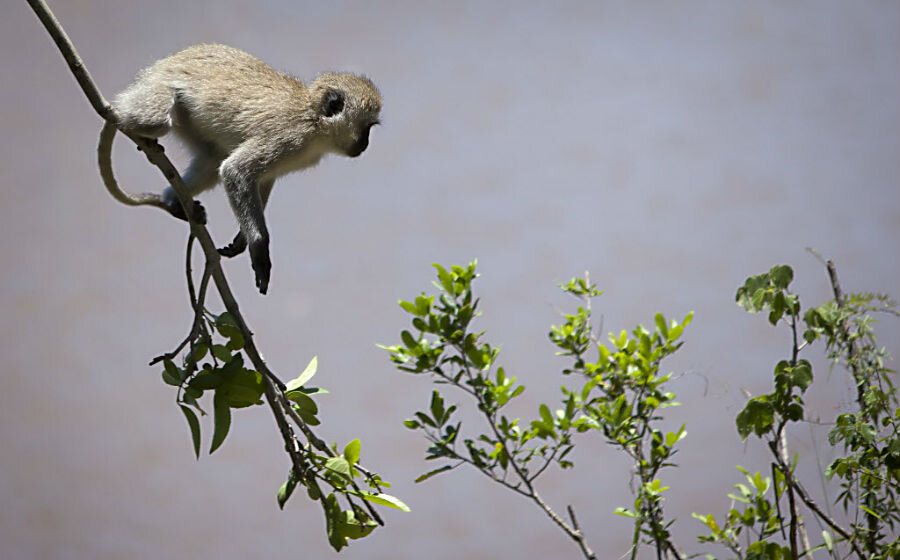How a monkey caused a nationwide blackout in Kenya
Loading...
A monkey shut down power throughout Kenya on Tuesday.
Officials first noticed the power outage at Kenya's largest power plant, Gitaru Hydro power station, around 11:30 am, and initially blamed it on a simple technical glitch. They later discovered the furry culprit, who had survived the fall and was taken in by Kenya Wildlife Services.
"A monkey climbed on the roof of Gitaru Power Station and dropped onto a transformer, tripping it," Kenya Electricity Generating Company (KenGen), the company responsible for nearly 75 percent of Kenya's electricity, said in a Tuesday statement.
That set off a chain reaction that caused other machines at the power station to overload, resulting in a loss of more than 180 megawatts – enough to trigger a national blackout. On a typical day, Gitaru generates about 10 percent of Kenya's electricity from a 100-foot-tall dam on the Tana River.
Kenya's power grid has received little infrastructure support since its installation, leading to frequent power outs. On Tuesday, businesses took the familiar step of turning to backup generators, which are more expensive.
The monkey shouldn't have been able to get in, said officials. "KenGen power installations are secured by electric fencing which keeps away marauding wild animals," the company said, describing Tuesday's simian situation as an "isolated incident."
It is far from the first time an animal has been responsible for a power outage.
In April, a weasel halted the largest particle accelerator in the world, the Large Hadron Collider, which had also been shut down in 2009 by a bird.
Moreover, every month squirrels take out power for about four of every 10,000 customers, according to the American Public Power Association's Squirrel Index.
Around the world, birds, snakes, rats, raccoons, and weasels have been responsible for blackouts.
Some have argued that countries with aging power grids should transition to more stable localized grids that are also less dependent on fossil fuels, one of the biggest contributors to global warming.
Centralized grids also tend to be vulnerable to large-scale disruption from natural disasters, or even cyberattack.
The United States Department of Energy is currently looking into an automated, decentralized smart grid. Journalist Justin Gerdes reports that policymakers around the world are collaborating to bring about better electrical systems that will be "more stable and secure, cleaner and cheaper, and able to accommodate larger shares of variable renewable energy systems."
"Prepare for the arrival of the renewable energy microgrid," writes Mr. Gerdes.







